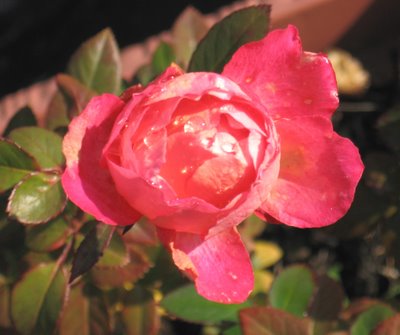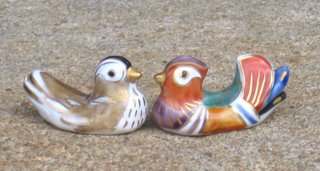:::::::::::::::::::::::::::::::::::::::::::::::::::::::::::::::::::::::::::::::::::::::::::::::::::::
winter morning -
a few dewdrops on
my last rose

:::::::::::::::::::::::::::::::::::::::::::::::::::::::::::::::::::::::::::::::::::::::::::::::::::::
the next morning :
my last rose now
covered in white
This is the Camellia in snow !
:::::::::::::::::::::::::::::::::::::::::::::::::::::::::::::::::::::::::::::::::::::::::::::::::::::
More on the discussion of this haiku is here
MU and Haiku
Read my Haiku Archives from December 2006
***************************
Please send me your contributions
To the Daruma Museum Index
To the World Kigo Database








3 comments:
I like this haiku, Gabi.
It is succinct, objective, makes good use of choshi (tone and rhythm). yugen (depth and mystery), and makoto (truth and beauty).
You write in a style respective of
the Japanese who gave us this medium.
robert wilson
http://groups.yahoo.com/group/cherrypoetryclub/message/29396
冬薔薇の季語がせんじつ近所の句会に
登場しました。
とても良い感じですね。
中村 作雄
Stunning haiku, as usual, Gabi.
I think that the key word is : (last). It is the pivot of this perfect haiku. I admire the simplicity in which you convey great ideas.
Post a Comment